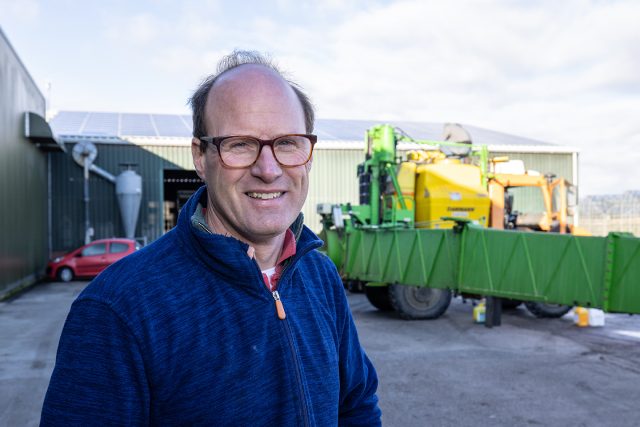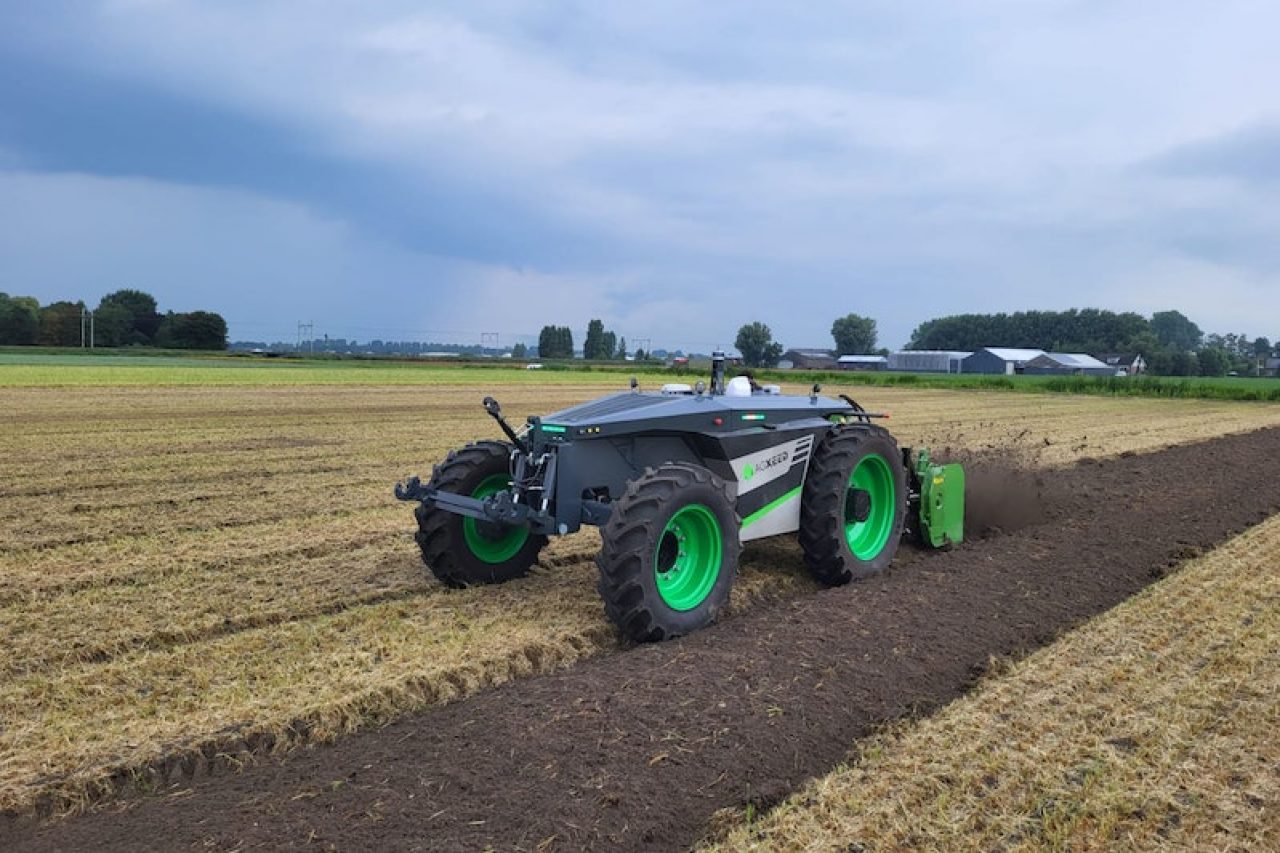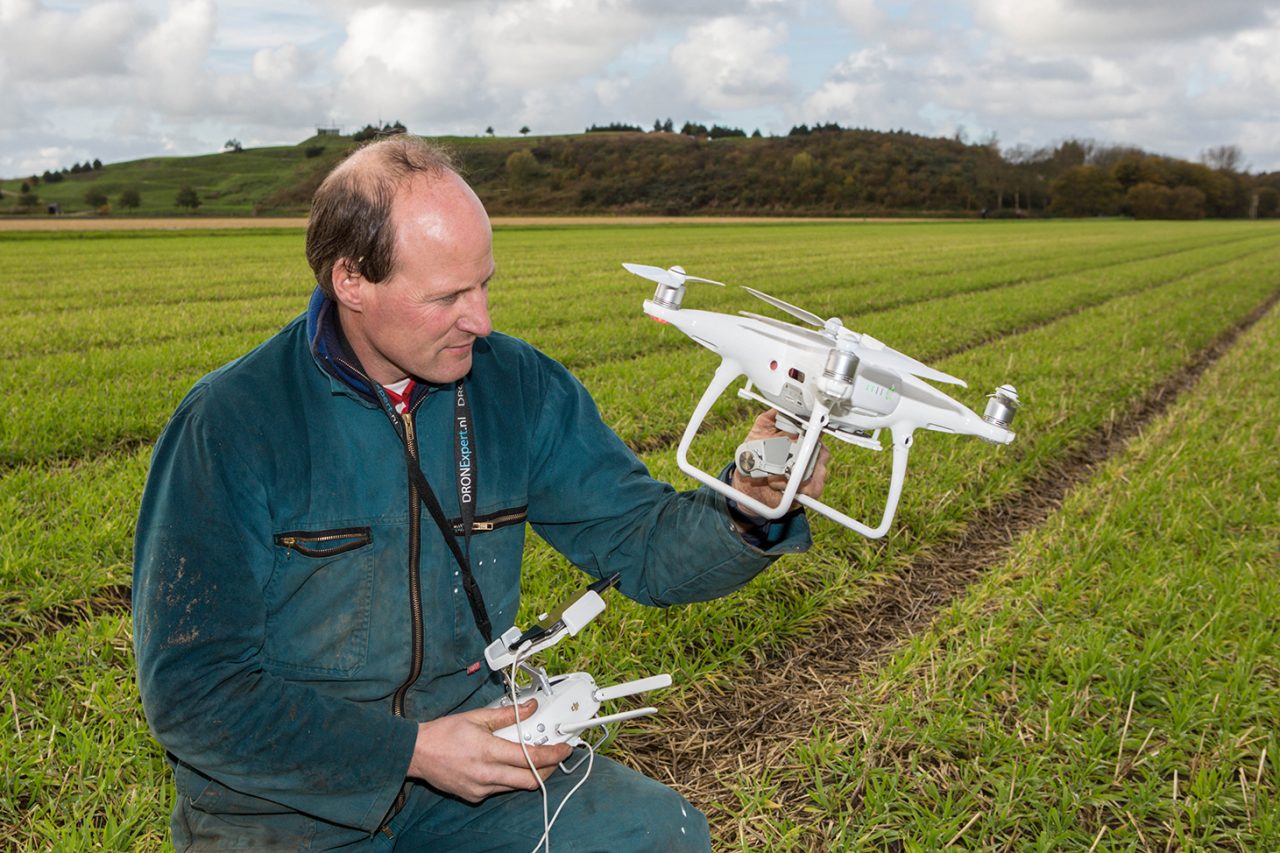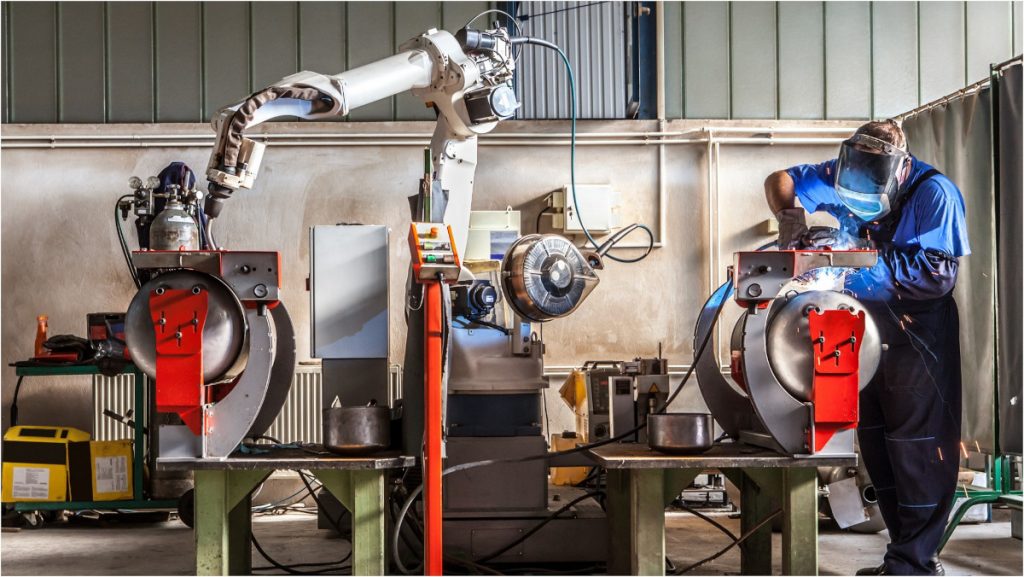Boston Dynamics Atlas Gets a Grip
Robot Talk Episode 33 – Interview with Dan Stoyanov

Claire chatted to Professor Dan Stoyanov from University College London all about robotic vision, surgical robotics, and artificial intelligence.
Dan Stoyanov, FREng, FIET, is a Professor at UCL Computer Science holding a Royal Academy of Engineering Chair in Emerging Technologies. He is Director of the Wellcome/EPSRC Centre for Interventional and Surgical Sciences (WEISS), a large research centre combining engineering and clinical expertise. His research interests are focused on surgical robotics, surgical data science and the development of surgical AI systems for clinical use. He is Chief Scientist at Digital Surgery, and he co-founded Odin Vision Ltd as a UCL spin-out focused on AI in gastroenterology.
‘Smart’ walking stick could help visually impaired with groceries, finding a seat
Why Do AGVs Need Reliable Motors?
When a professor meets a farmer

Robot developments and the study of social processes can happen side-by-side in RoboHouse. Because we feel that technology should learn to look beyond its own horizons, if we aim to make the workplace more attractive. Why are people leaving the jobs they used to love? What’s going on in crucial sectors like healthcare, agriculture and manufacturing?
To explore these questions, we go into the field with scientists and innovators. Under the banner of FRAIM, our new transdisciplinary research centre dedicated to the future of work. What do robot specialists notice when they travel to places where people and robots work together?
Our latest instalment of FRAIM in the Field follows Maria Luce Lupetti as she meets with Henk Verdegaal on a grey November day. Last August Verdegaal, flower bulb farmer in the Netherlands, finally saw what an agricultural robot could do on his lands. The Agbot by developer AgXeed was humming along, managed by a “smart and ready to use autonomy system with a full suite of vehicle peripherals.”

Henk Verdegaal experiments with smart technology to reduce his use of pesticides. He expects that systems like Agbot can also reduce his reliance on labour and liberate him from field work, so that he can focus on more important processes. Drones however, have so far failed to impress Verdegaal. Connectivity issues caused the drone to lose its way and communicate poorly with the camera.

Assistant professor Maria Luce Lupetti, specialised in critical design for AI systems at TU Delft, arrives at a sobering insight during FRAIM in the Field: “In a place like a farm there are clear problems like not finding people to drive the truck. So it automatically makes you think: ‘OK, you make it autonomous. You have a clear need for that, the technology is there.’ But there are reasons why people have a hard time finding workers. These problems are systemic. There are financial issues, there are sustainability issues. There is a pressing housing crisis that makes the price of the land rise. A lot of different forces are coming together to influence the work of people on a farm.”
Watch the rest of the series here, or on our youtube channel.
The post When a professor meets a farmer appeared first on RoboHouse.
Microelectronics give researchers a remote control for biological robots
Special drone collects environmental DNA from trees
An imitation-relaxation reinforcement learning framework for four-legged robot locomotion
Flexible feeding for a smarter production line
A robot able to ‘smell’ using a biological sensor
How Remote On/Off Benefits Automation Applications
New robots in Europe can be workers’ best friends

Researchers are ushering in a new way of thinking about robots in the workplace based on the idea of robots and workers as teammates rather than competitors. © BigBlueStudio, Shutterstock
For decades, the arrival of robots in the workplace has been a source of public anxiety over fears that they will replace workers and create unemployment.
Now that more sophisticated and humanoid robots are actually emerging, the picture is changing, with some seeing robots as promising teammates rather than unwelcome competitors.
‘Cobot’ colleagues
Take Italian industrial-automation company Comau. It has developed a robot that can collaborate with – and enhance the safety of – workers in strict cleanroom settings in the pharmaceutical, cosmetics, electronics, food and beverage industries. The innovation is known as a “collaborative robot”, or “cobot”.
Comau’s arm-like cobot, which is designed for handling and assembly tasks, can automatically switch from an industrial to a slower speed when a person enters the work area. This new feature allows one robot to be used instead of two, maximising productivity and protecting workers.
‘It has advanced things by allowing a dual mode of operation,’ said Dr Sotiris Makris, a roboticist at the University of Patras in Greece. ‘You can either use it as a conventional robot or, when it is in collaborative mode, the worker can grab it and move it around as an assisting device.’
Makris was coordinator of the just-completed EU-funded SHERLOCK project, which explored new methods for safely combining human and robot capabilities from what it regarded as an often overlooked research angle: psychological and social well-being.
Creative and inclusive
Robotics can help society by carrying out repetitive, tedious tasks, freeing up workers to engage in more creative activities. And robotic technologies that can collaborate effectively with workers could make workplaces more inclusive, such as by aiding people with disabilities.
“There is increasing competition around the globe, with new advances in robotics.”
– Dr Sotiris Makris, SHERLOCK
These opportunities are important to seize as the structure and the age profile of the European workforce changes. For example, the proportion of 55-to-64-year-olds increased from 12.5% of the EU’s employees in 2009 to 19% in 2021.
Alongside the social dimension, there is also economic benefit from greater industrial efficiency, showing that neither necessarily needs to come at the expense of the other.
‘There is increasing competition around the globe, with new advances in robotics,’ said Makris. ‘That is calling for actions and continuous improvement in Europe.’
Makris cites the humanoid robots being developed by Elon Musk-led car manufacturer Tesla. Wearable robotics, bionic limbs and exoskeleton suits are also being developed that promise to enhance people’s capabilities in the workplace.
Still, the rapidly advancing wave of robotics poses big challenges when it comes to ensuring they are effectively integrated into the workplace and that people’s individual needs are met when working with them.
Case for SHERLOCK
SHERLOCK also examined the potential for smart exoskeletons to support workers in carrying and handling heavy parts at places such as workshops, warehouses or assembly sites. Wearable sensors and AI were used to monitor and track human movements.
With this feedback, the idea is that the exoskeleton can then adapt to the needs of the specific task while helping workers retain an ergonomic posture to avoid injury.
‘Using sensors to collect data from how the exoskeleton performs allowed us to see and better understand the human condition,’ said Dr Makris. ‘This allowed us to have prototypes on how exoskeletons need to be further redesigned and developed in the future, depending on different user profiles and different countries.’
SHERLOCK, which has just ended after four years, brought together 18 European organisations in multiple countries from Greece to Italy and the UK working on different areas of robotics.
The range of participants enabled the project to harness a wide variety of perspectives, which Dr Makris said was also beneficial in the light of differing national rules on integrating robotics technology.
As a result of the interaction of these robotic systems with people, the software is advanced enough to give direction to ‘future developments on the types of features to have and how the workplace should be designed,’ said Dr Makris.
Old hands, new tools
Another EU-funded project that ended this year, CO-ADAPT, used cobots to help older people navigate the digitalised workplace.
“You find interesting differences in how much the machine and how much the person should do.”
– Prof Giulio Jacucci, CO-ADAPT
The project team developed a cobot-equipped adaptive workstation to aid people in assembly tasks, such as making a phone, car or toy – or, indeed, combining any set of individual components into a finished product during manufacturing. The station can adapt workbench height and lighting to a person’s physical characteristics and visual abilities. It also includes features like eye-tracking glasses to gather information on mental workload.
That brings more insight into what all kinds of people need, said Professor Giulio Jacucci, coordinator of CO-ADAPT and a computer scientist at the University of Helsinki in Finland.
‘You find interesting differences in how much the machine and how much the person should do, as well as how much the machine should try to give guidance and how,’ Jacucci said. ‘This is important work that goes down to the nuts and bolts of making this work.’
Still, cobot-equipped workplaces that can fully tap into and respond to people’s mental states in real-life settings could still be a number of years away, he said.
‘It’s so complex because there’s the whole mechanical part, plus trying to understand people’s status from their psychophysiological states,’ said Prof Jacucci.
Meanwhile, because new technologies can be used in much simpler ways to improve the workplace, CO-ADAPT also explored digitalisation more broadly.
Smart shifts
One area was software that enables ‘smart-shift scheduling’, which arranges duty periods for workers based on their personal circumstances. The approach has been shown to reduce sick leave, stress and sleep disorders among social welfare and health care workers.
‘It’s a fantastic example of how workability improves because we use evidence-based knowledge of how to have well-being-informed schedules,’ said Prof Jacucci.
Focusing on the individual is key to the future of well-integrated digital tools and robotics, he said.
‘Let’s say you have to collaborate with some robot in an assembly task,’ he said. ‘The question is: should the robot be aware of my cognitive and other abilities? And how should we divide the task between the two?’
The basic message from the project is that plenty of room exists to improve and broaden working environments.
‘It shows how much untapped potential there is,’ said Prof Jacucci.
This article was originally published in Horizon, the EU Research and Innovation magazine.
Research in this article was funded by the EU. If you liked this article, please consider sharing it on social media.